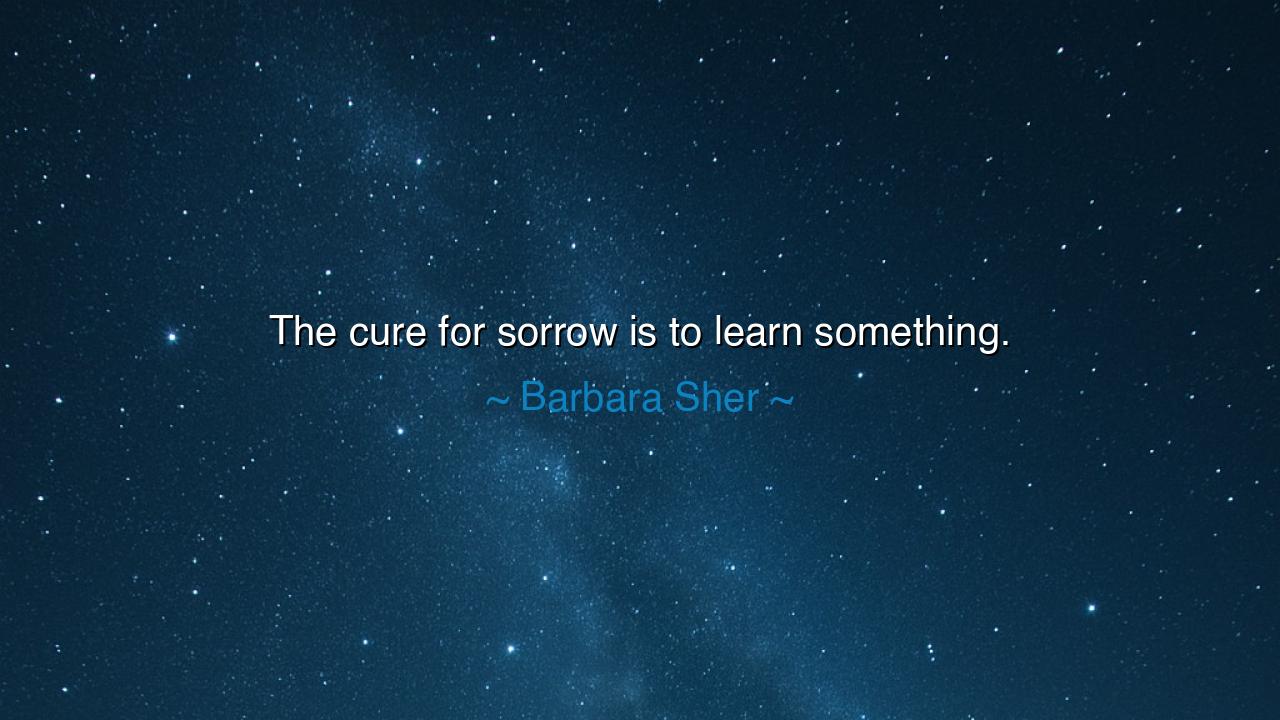
The cure for sorrow is to learn something.






Hear the luminous words of Barbara Sher, teacher of dreams and advocate for the hidden talents within us all: “The cure for sorrow is to learn something.” This is no idle phrase, but a medicine for the soul, spoken in the cadence of wisdom. For sorrow, when left to itself, becomes a stagnant pool—dark, heavy, without movement. But learning is like water flowing fresh from the mountain; it brings movement, change, and renewal. Thus, Sher tells us that to awaken the mind in curiosity is to open a door through which grief may begin to loosen its grip.
The meaning of her saying lies in the mystery of the human spirit. When sorrow overtakes us, we turn inward, circling endlessly within pain. The heart feels trapped, as though no new future can be imagined. But when we choose to learn—to take up a skill, to read a book, to discover something unknown—we break the circle. The mind, engaged in growth, drags the soul forward into life again. It is not that learning erases sorrow, but that it transforms it into a stepping stone rather than a gravestone.
Consider the story of Abraham Lincoln. After the death of his beloved son Willie, the President sank into a profound sorrow. Yet even in his grief, Lincoln devoted himself to the terrible lessons of leadership during the Civil War. He studied maps, military strategy, speeches of philosophers—constantly learning, constantly engaging his mind. In this way, he did not drown in his sorrow but carried it as he guided a nation through its darkest trial. His story is proof of Sher’s wisdom: sorrow may remain, but when paired with learning, it can give birth to strength and endurance.
The ancients knew this too. Socrates, awaiting his death in prison, did not spend his final days lamenting, but learning—discussing with his disciples the nature of the soul, the meaning of justice, the mysteries of life after death. Even as the cup of hemlock approached his lips, he turned his mind toward discovery, not despair. For the act of learning lifted him above fear and sorrow, preparing him to face death with calm.
The power of Sher’s words also lies in their accessibility. Not all cures require wealth, nor great journeys, nor divine intervention. The cure she offers is within reach of every human being: pick up something new, learn it, and let it carry you forward. To learn a language is to open new worlds; to learn a craft is to awaken new purpose; to learn even a small fact is to remind oneself that the universe is wider than grief. Each new lesson is a spark of life, kindling the fire of hope.
The lesson for us is clear: when sorrow descends, do not remain motionless. Take up the discipline of learning as a shield. Enroll in a class, read a book, study a subject, attempt a skill you have never tried. By doing so, you give the heart something beyond its grief to hold, and you plant seeds that will grow into new strength. For to learn is not only to know more of the world, but to remember that life continues to expand even when sorrow tries to contract it.
So, children of tomorrow, remember the wisdom of Barbara Sher: the mind is a lamp, and when sorrow dims it, you must add oil by learning. Do not let grief imprison you in stillness. Seek knowledge, however small, and you will feel the air stir, the chains loosen, the world grow larger than your pain. For sorrow shrinks when confronted with discovery, and in the act of learning, life reclaims its voice.






AAdministratorAdministrator
Welcome, honored guests. Please leave a comment, we will respond soon